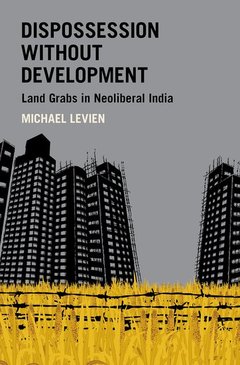Description
Dispossession without Development
Land Grabs in Neoliberal India
Modern South Asia Series
Author: Levien Michael
Language: English
Subjects for Dispossession without Development:
Dispossession without Development
Publication date: 05-2018
332 p. · 23.6x16 cm · Hardback
Publication date: 05-2018
332 p. · 23.6x16 cm · Hardback
Dispossession without Development
Publication date: 04-2018
336 p. · 15.7x23.1 cm · Paperback
Publication date: 04-2018
336 p. · 15.7x23.1 cm · Paperback
Description
/li>Biography
/li>
Since the mid-2000s, India has been beset by widespread farmer protests against land dispossession. Dispossession Without Development demonstrates that beneath these conflicts lay a profound shift in regimes of dispossession. While the postcolonial Indian state dispossessed land mostly for public-sector industry and infrastructure, since the 1990s state governments have become land brokers for private real estate capital. Using the case of a village in Rajasthan that was dispossessed for a private Special Economic Zone, the book ethnographically illustrates the exclusionary trajectory of capitalism driving dispossession in contemporary India. Taking us into the lives of diverse villagers in "Rajpura," the book meticulously documents the destruction of agricultural livelihoods, the marginalization of rural labor, the spatial uneveness of infrastructure provision, and the dramatic consequences of real estate speculation for social inequality and village politics. Illuminating the structural underpinnings of land struggles in contemporary India, this book will resonate in any place where "land grabs" have fueled conflict in recent years.
Michael Levien is assistant professor of sociology at Johns Hopkins University. He received his PhD in sociology from the University of California, Berkeley in 2013. He has been researching and writing about rural land dispossession in India for the past fifteen years. He lives in Baltimore, Maryland.
© 2024 LAVOISIER S.A.S.

